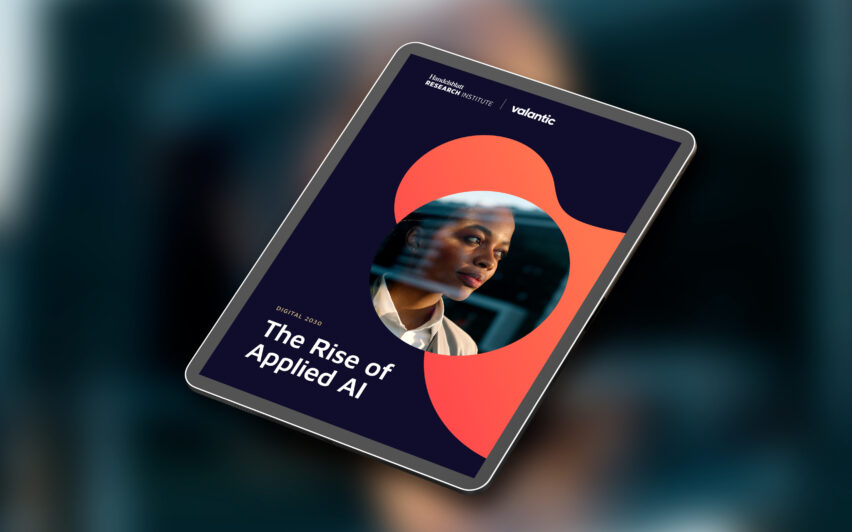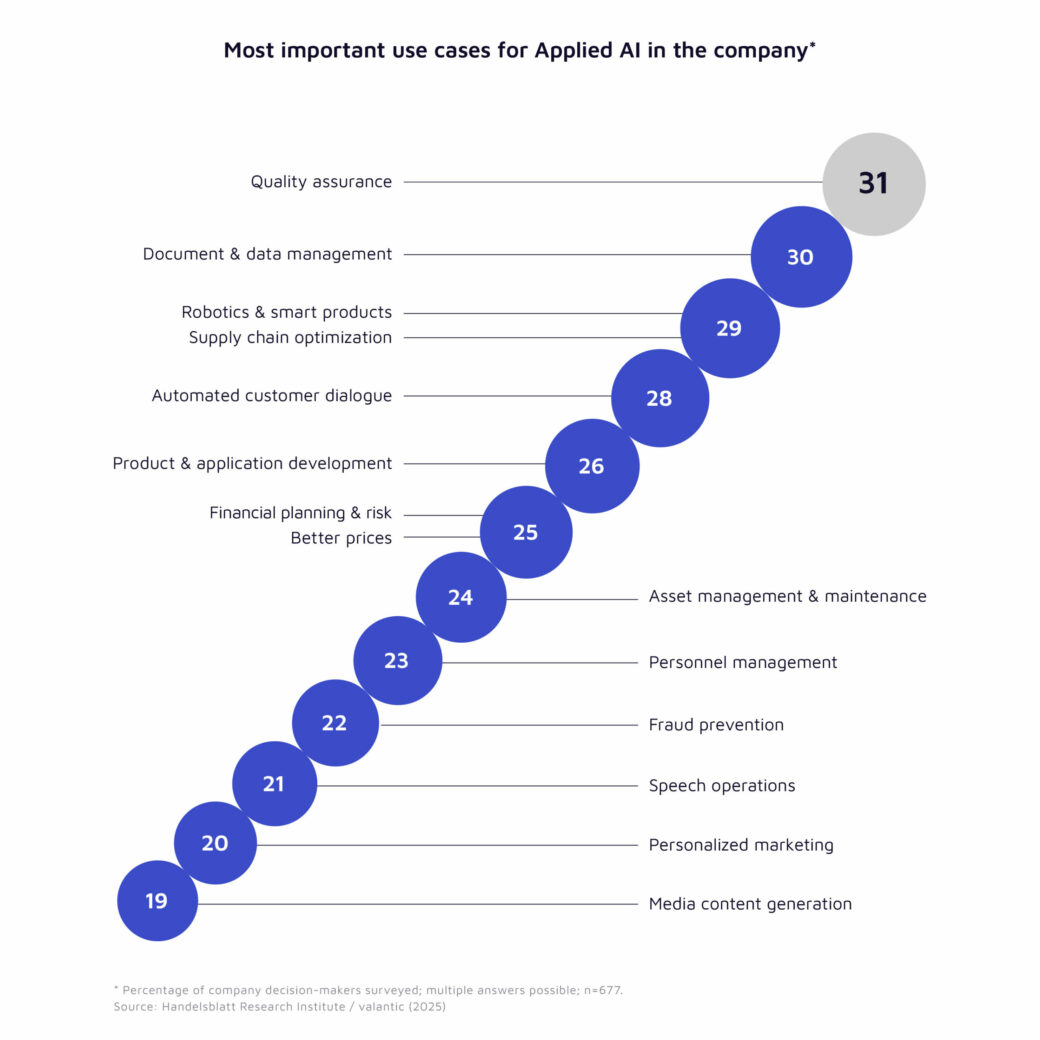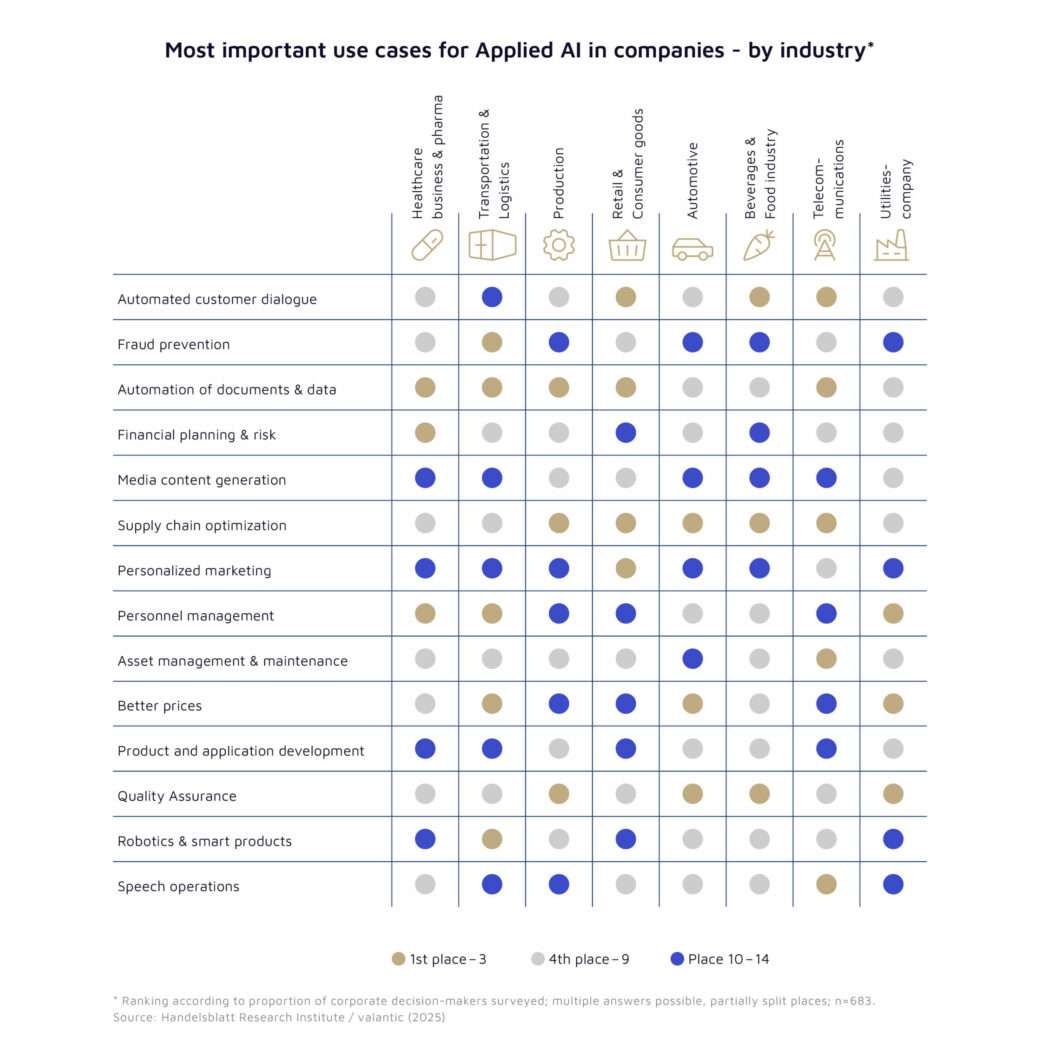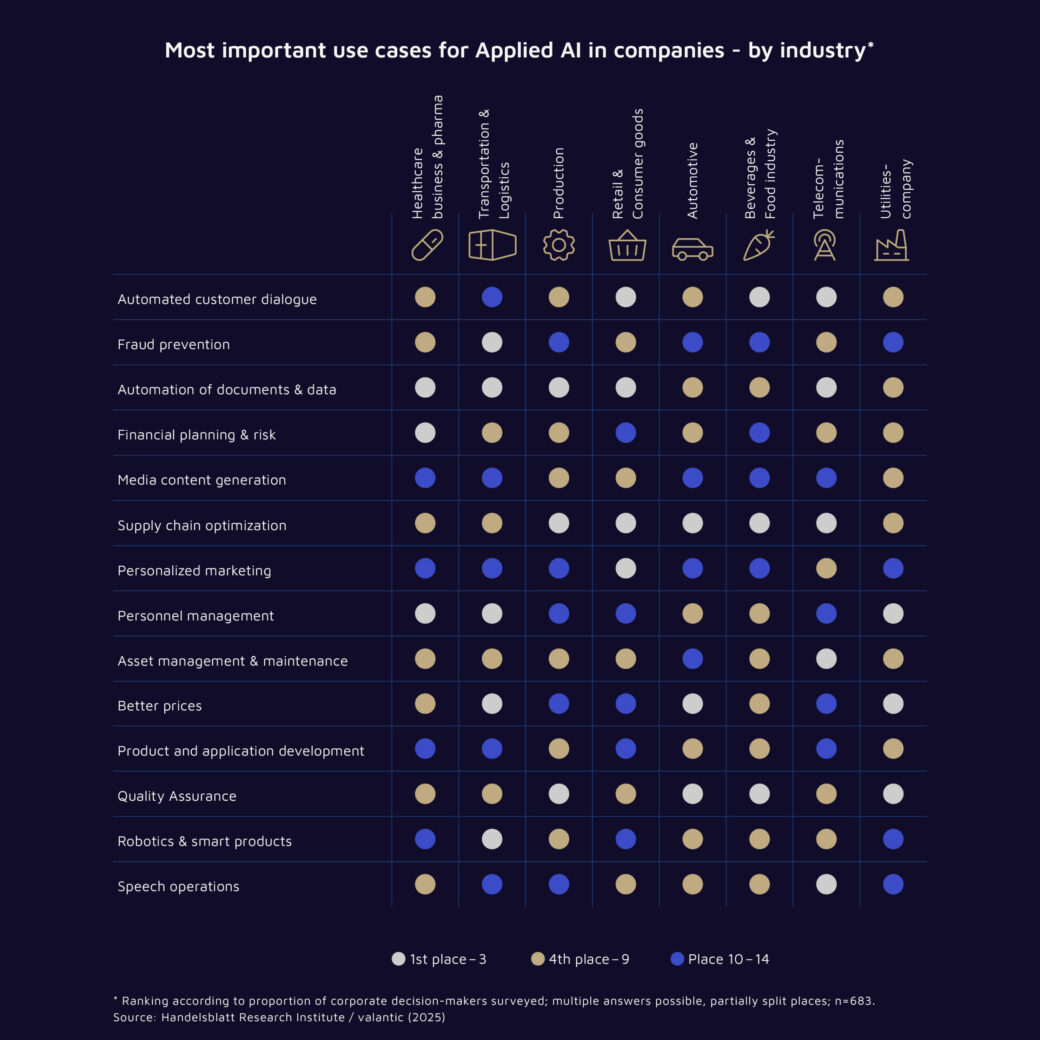Highlight

Successful together – our valantic Team.
Meet the people who bring passion and accountability to driving success at valantic.
Get to know usMunich, April 3, 2025: Artificial intelligence now delivers diverse benefits to enhancing process efficiency at companies across the DACH region. In partnership with the Handelsblatt Research Institute (HRI), digital consulting, solutions, and software house valantic has examined the key AI use cases for businesses and the impact of industry affiliation. The findings reveal that AI applications are already widely adopted, particularly in quality control and automated data and document management. AI-driven supply chain optimization has also emerged as a crucial application area for many companies.
valantic and the HRI surveyed approximately 700 decision-makers from companies in Germany, Austria, and Switzerland to assess the added value they are already achieving by deploying AI applications in their business processes (Applied AI). The survey revealed that two out of three companies report measurable benefits from AI, such as efficiency gains, material and cost reductions, or increases in sales and profitability. The study also examined how these decision-makers perceive the relevance of different AI use cases.
As part of the survey, valantic categorized AI applications into 14 use case clusters and asked participants to identify the most important ones for their businesses. Respondents assigned the highest relevance to the following five clusters:
While each of the top five AI application areas is considered the most important for their company by about a third of respondents, C-level decision-makers still place relatively little emphasis on traditional generative AI use cases. For instance, just 19% of respondents cited the generation of creative content—such as images, text, sound, or video—as a key AI application in their company.
Another key finding of the study is that the perceived relevance of AI applications varies by industry. Companies in industrial sectors such as automotive, beverage and food production, or manufacturing prioritize AI-driven quality control. In contrast, healthcare and pharmaceutical companies see document and data management as a crucial use case. In the retail and consumer goods sectors, supply chain optimization is the most frequently mentioned application. Meanwhile, in the utilities sector, purchasing and sales play a critical role, making price optimization a widely recognized AI application.
Laurenz Kirchner, Managing Director and Data & AI Practice Lead at valantic, states: “Our study reveals that AI is no longer just a future vision—it is being actively used in many companies today. The focus for many organizations is now shifting to identifying which application areas provide the greatest benefits within their own operations. Decision-makers must prioritize use cases that deliver real value and strategically embed AI initiatives. Without clear goals, proper prioritization, and seamless integration into corporate strategy, AI will fail to generate a meaningful impact.”
The study results are based on a comprehensive quantitative and qualitative survey of approximately 700 decision-makers from companies across the DACH region. The majority of respondents were C-level executives from organizations with more than 500 employees. The study placed a strong focus on the industries automotive, healthcare and pharmaceuticals, food and beverage manufacturing, retail and consumer goods, manufacturing, telecommunications, transportation and logistics, and utilities.

Access the full study report here
The valantic study “Digital 2030” highlights current developments and provides insights into how companies can use them for their success.

Source: Handelsblatt Research Institute / valantic
Many companies are already achieving measurable added value on the basis of AI applications.

Source: valantic
Laurenz Kirchner, Managing Director und Lead Data & AI Practice bei valantic

Source: Handelsblatt Research Institute / valantic
valantic study: These are the most important use cases for Applied AI in companies

Source: Handelsblatt Research Institute / valantic
Use Cases for Applied AI: Relevance differs according to industry.

Source: Handelsblatt Research Institute / valantic
Use Cases for Applied AI: Relevance differs according to industry.